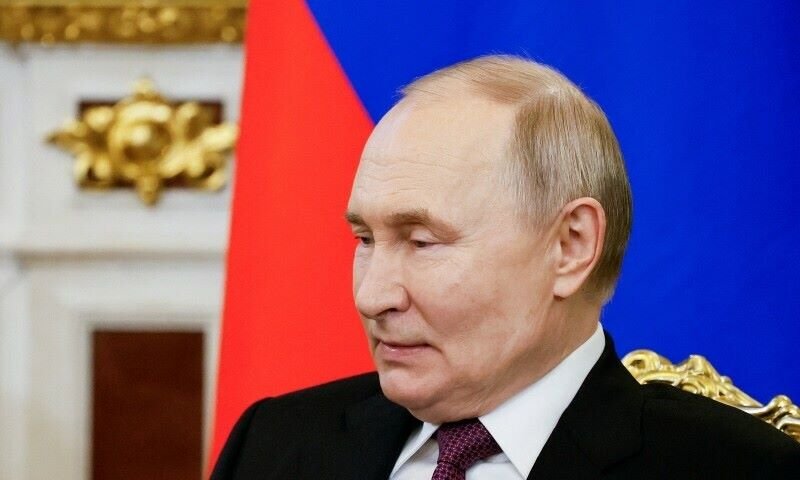St. Petersburg (TDI): Russian President Vladimir Putin has declined to address claims that Israel, potentially backed by the United States, is plotting to assassinate Iran’s Supreme Leader, Ayatollah Ali Khamenei.
Responding to a direct question during a press briefing with senior editors in St. Petersburg, Putin said, “I don’t even want to discuss this possibility. I do not want to.”
Putin added that he had heard the statements being made but refused to elaborate further.
The Russian president’s remarks came amid soaring regional tensions, as Israeli Prime Minister Benjamin Netanyahu hinted that his country’s ongoing military campaign could bring about regime change in Tehran.
Read More: Behind the Smoke: Is Pakistan Entering the Iran-Israel War?
Meanwhile, US President Donald Trump, speaking on Tuesday, made a provocative statement claiming Washington knew Khamenei’s whereabouts but had no plans to target him “for now.”
Despite growing international concern, Putin emphasized that Iranian society appears to be standing behind its leadership during the crisis.
“In Iran, despite the complexity of internal political dynamics, we are witnessing a consolidation of public support for the country’s political leadership,” he said.
Putin maintained that diplomacy should remain the path forward. He called for a resolution that recognizes both Iran’s right to develop peaceful nuclear energy and Israel’s right to security.
Read More: Battle Lines Shifting: US Repositions Aircraft, Ships in Middle East
Speaking as Israeli airstrikes on Iranian facilities continued and with the US considering further involvement, Putin confirmed he had been in contact with both President Trump and Prime Minister Netanyahu.
He noted that Russia had shared proposals aimed at de-escalating the conflict while maintaining Iran’s access to civilian nuclear technology.
Pressed on the issue of regime change, Putin was cautious. He questioned whether pursuing such a course genuinely serves the intended goals.
He also revealed that Iran’s underground uranium enrichment sites had not been affected by recent air raids.
“These underground facilities still exist. Nothing has happened to them,” he said. “It seems more reasonable for all parties involved to search for an end to the violence and work toward a mutually acceptable solution. I believe this is possible.”
When asked if Moscow was prepared to provide Iran with advanced military technology to defend against Israeli attacks, Putin clarified that the strategic agreement signed with Tehran earlier this year does not include military provisions, and no such request for weapons has been made by Iran.
Farkhund Yousafzai is an Associate Editor at The Diplomatic Insight.



